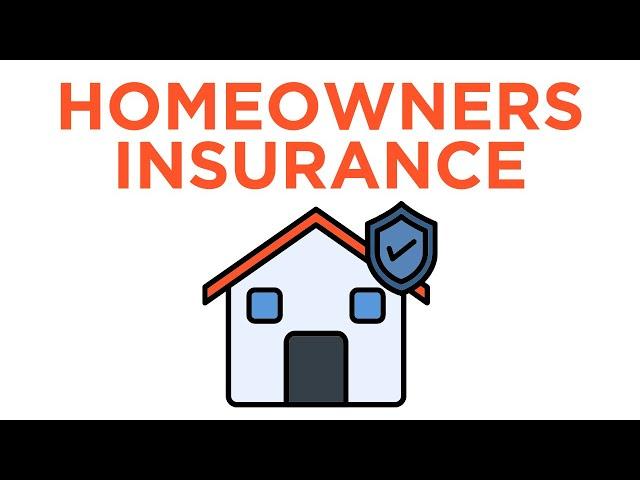When it comes to protecting your property, understanding the right insurance coverage can feel a bit overwhelming. Whether you own a cozy home where you live or a rental property you lease out to tenants, having the right insurance is crucial—but homeowners insurance and landlord insurance aren’t one and the same. Each type serves a different purpose, offering unique protections tailored to your specific needs. In this article, we’ll break down the key differences between homeowners and landlord insurance in a simple, friendly way—so you can feel confident that your investment is properly covered, no matter the situation. Let’s dive in!
Table of Contents
- Understanding Coverage Differences Between Homeowners and Landlord Insurance
- Why Your Property Use Changes Your Insurance Needs
- Common Claims and What Each Policy Typically Covers
- Tips for Choosing the Right Insurance Based on Your Situation
- Key Takeaways
Understanding Coverage Differences Between Homeowners and Landlord Insurance
While both homeowners and landlord insurance offer protection for property owners, their coverage focus is tailored to different needs. Homeowners insurance primarily safeguards your personal residence and belongings against perils like fire, theft, and natural disasters. It also covers personal liability if someone is injured on your property. This means it not only protects the physical structure but also your personal possessions and daily living expenses if your home becomes temporarily uninhabitable.
On the other hand, landlord insurance is designed with rental properties in mind. Its coverage extends to the building itself and often includes protection against lost rental income if the property becomes unlivable due to a covered event. Moreover, landlord policies typically account for liability related to tenant injuries or lawsuits, but they usually don’t cover tenant belongings. Key features often include:
- Coverage for property damage caused by tenants or vandalism
- Protection against rental income loss
- Liability coverage aimed at landlord-specific risks
Why Your Property Use Changes Your Insurance Needs
When you switch from living in your home to renting it out, your insurance needs undergo a significant transformation. A policy designed to protect your personal belongings and family isn’t enough when your property becomes a source of income. This shift means you’re stepping into the role of a landlord, which exposes you to different risks like damage caused by tenants, liability for injuries on the property, and even loss of rental income if the property becomes uninhabitable. Simply put, your insurance policy needs to evolve to cover both the physical asset and the business aspects tied to it.
Key factors to consider include:
- Property usage: Owner-occupied versus tenant-occupied dramatically changes coverage requirements.
- Liability exposure: You’ll want protection for incidents that occur to renters or visitors on your property.
- Personal belongings: Coverage for your own items becomes less relevant, while rental appliances or furnishings might require attention.
- Loss of income: Unlike homeowners insurance, landlord policies often include benefits like compensating for lost rent during repairs.
Common Claims and What Each Policy Typically Covers
When it comes to homeowners insurance, typical claims often revolve around damages to the physical structure due to events like fire, storms, or theft. This policy usually extends to personal belongings inside the home, offering coverage if your laptop, furniture, or clothing get damaged or stolen. It also includes protection for additional living expenses if you’re temporarily displaced due to a covered loss, ensuring you have a place to stay while repairs are underway. Liability coverage is another key feature, shielding you from financial responsibility should someone get injured on your property.
On the flip side, landlord insurance is tailored for rental property owners and places a greater emphasis on the liabilities and risks that arise from tenants. While it still covers property damage caused by fires or natural disasters, claims related to tenant-caused damage, like accidental floods or vandalism, become more prominent. Additionally, this policy often includes coverage for lost rental income if the property becomes uninhabitable due to a covered event. Protection against liability claims—such as a tenant or visitor slipping and falling on the premises—is also a crucial component, helping landlords safeguard their investment and peace of mind.
Tips for Choosing the Right Insurance Based on Your Situation
Assess your living situation and property usage carefully to determine which insurance fits best. If you reside in the home you own, a homeowners insurance policy typically provides comprehensive protection covering your personal belongings, the structure itself, and liability for accidents that occur on your property. This type of insurance is designed to give you peace of mind as you live comfortably without worrying about unexpected damages or losses. On the other hand, if you rent out your property to tenants, landlord insurance is tailored to mitigate risks associated with rental properties, such as property damage caused by tenants, loss of rental income, and liability related to tenant injuries.
Consider these key factors before making your choice:
- Occupancy: Are you living in the home or renting it out?
- Property use: Personal residence versus income-generating rental.
- Liability coverage needs: Risks associated with guests or tenants.
- Financial protection: What losses are most critical to cover—personal belongings, rental income, or property repairs?
Answering these questions honestly will guide you toward the most effective insurance type, ensuring your assets and financial interests are protected based on your unique circumstances.
Key Takeaways
Whether you’re proudly owning your cozy nest or managing rental properties, understanding the key differences between homeowners and landlord insurance is essential. Each policy is tailored to protect different needs, so choosing the right one ensures you’re covered when life throws curveballs your way. Armed with this knowledge, you’re better equipped to make informed decisions and safeguard your investment—because peace of mind at home, no matter the role you play, is priceless. Thanks for reading, and here’s to smart coverage and happy living!





